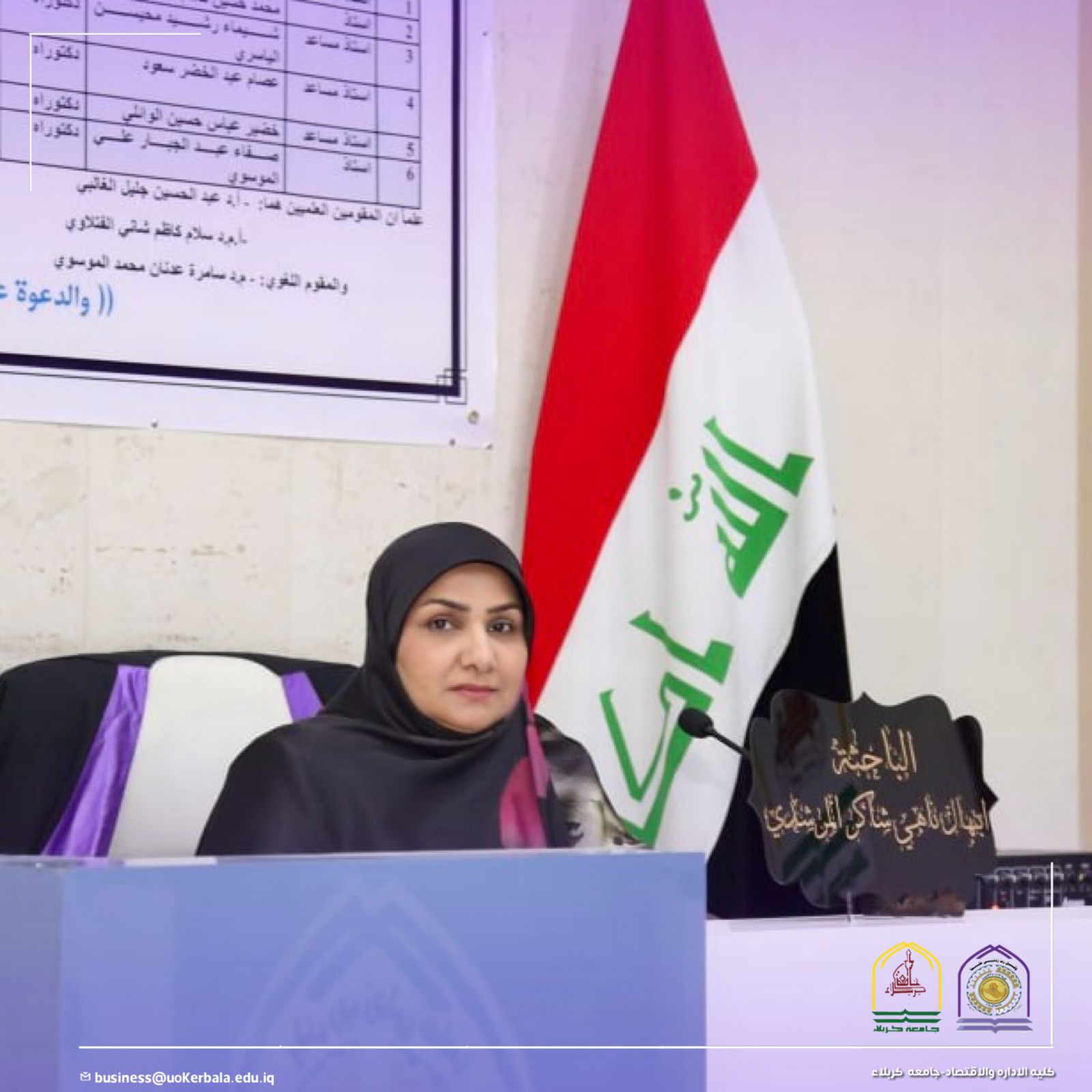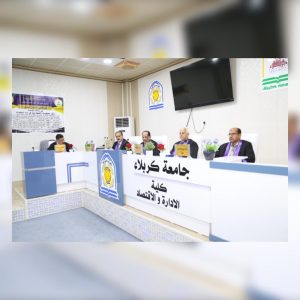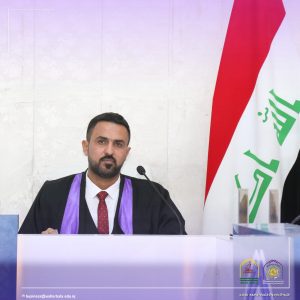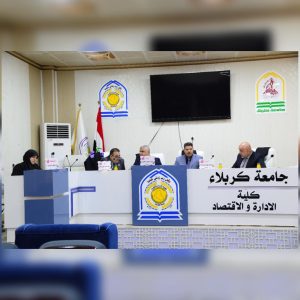The role of fiscal and monetary policies in the transformation of the green economy
– The experiences of selected countries with reference to Iraq –
Dissertation
To the Council of the College of Administration and Economics / University of Karbala as part of the requirements for obtaining a Doctor of Philosophy degree in Economic Sciences
By the student
Ibtihal Nahi Shaker Al Morshedy
Supervised by Prof. Dr. Safaa Abdul-Jabbar Al-Moussawi
Abstract
In order to move to a green economy that is no longer an option but a necessity, The environmental strategy, a set of initiatives designed to mitigate the negative impacts on the environment, should be adopted to reduce energy and fuel consumption, increase reliance on sustainable resources and renewable energy, stop wasting natural resources, ensure prosperity and sustainable development, and the need to seek investment opportunities that support countries’ green economy choice and provide food for people to achieve sustainable development in the energy, electricity, water, agriculture, transport, health and finally the environment sectors, The possibility of a transition to a green economy in Iraq is due to the existence of conditions conducive to such a transition. Iraq has all the ingredients for this transformation of its natural, agricultural and animal wealth. However, Iraq’s economy is described as a rent-growing economy, one of the most oil-dependent countries in financing government expenditure and foreign payments because its economy lacks a broad and diversified productive base and its financial system fails to develop real sources of revenue for the general budget in domestic currency. The Iraqi economy is taking place in a vicious circle of its superior dependence on oil revenues for the conduct of its economic life.
The study aimed to analyze the indicators of both fiscal and monetary policies and their impact on the indicators of the green economy. To verify this, the development of green fiscal and monetary policy indicators has been analysed in the countries of China and Germany. Their role in the green economic transformation has been confirmed with the potential for green growth in Iraq. If unconventional instruments of fiscal and monetary policies are activated in order to reach a green economy in which polluting emissions of carbon dioxide are reduced, It is therefore necessary to harmonize the monetary authority (Central Bank) with the financial authority (Ministry of Finance) to achieve the requirements of economic greening.
Research is based on the premise that fiscal and monetary policy instruments play a role in achieving sustainable development through the mobilization of financial resources and the gradual transition to a green economy. The most important findings of the research were that the research’s hypothesis was that fiscal and monetary policy could play its part in influencing economic activity, especially in the real sector that.































































